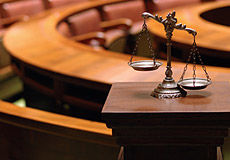Menu
April 16th, 2025
This morning, one of our firm's appeals came to an unsuccessful outcome, with the New Hampshire Supreme Court holding that under state law, the marital privilege applies to allow a spouse to refuse to take the witness stand to testify about confidential marital communications, but does not exclude from evidence the communications themselves.
Background
The married couple in question were facing a criminal investigation. They went to see a lawyer. The lawyer told them they could meet in a conference room in the law firm and have a conversation about things that would remain 100% confidential because they enjoyed the protection of the marital privilege. The lawyer was very, very wrong.
A Bizarre Twist
Unbeknownst to either member of the couple, an iPad in one of their possession was recording their entire meeting. Have you ever pulled a phone out of your pocket or purse, only to see that it is live-dialing someone, or has gone to an app you didn't intend to activate, or is suddenly loudly playing a video or ad displayed on a website or social media app, etc? This is apparently what happened to them, although the possibility remains that a third party intentionally activated the recording to entrap the couple. In any event, many months later, the police obtained the iPad and other smart devices by search warrant, and found the recording.
The Ruling
The marital privilege, which used to be called the husband-and-wife privilege, and then was recast as the spousal privilege after NH legislatively recognized gay marriage, is a legal privilege that in theory, provides some measure of protection against the government or other courtroom litigants trying to expose secrets shared within the marriage relationship. The Court, however, held that the marital communications privilege applies only to allow a spouse to refuse to testify against another spouse on the subject of confidential communications they had, or to prevent the other spouse from testifying about confidential communications. But it does not apply to the communications themselves. So if there happens to be an eavesdropper, or a hidden recording device, too bad for the married couple. They have no right to privacy, and their secrets can be revealed to the world by the government.
This is very different than the attorney-client privilege, which has the strongest legal protection of any confidential relationship in America. If the client fires the lawyer, publicly criticizes the lawyer, or even passes away, the attorney is still forbidden from revealing her secrets. This is also very different from statutory medical privileges, which protect the privacy of the medical information itself (paper and electronic records), rather than merely preventing the doctor from testifying about the treatment provided.
The Court's opinion says it doesn't change the law, it's always been that way. To the extent the couple relied on the lawyer's advice that their communications would be confidential sharing secrets with each other, isn't this kind of unfair? The Court's opinion basically boils down to - well, too bad, so sad. The lawyer was wrong. Maybe use a different lawyer next time.
What it Means of All of Us
My law partner and I have debated whether this ruling really makes any difference, practically speaking. Do any modern married couples even know about the so-called marital privilege? Do married couples in the 21st century, with their smartphones, tablets, Amazon Alexa, Siri, TVs, their children and other household members all listening to them 24/7, really think they have any right to privacy and confidentiality in their private conversations?
But I think it's sad that the opinion reveals that other than there is truly no person in this world that you can 100% trust with your deepest secrets outside of the attorney-client relationship. Not even the person you married and promised to cherish for life.
Read the Court's opinion:
Categories: Appeals






